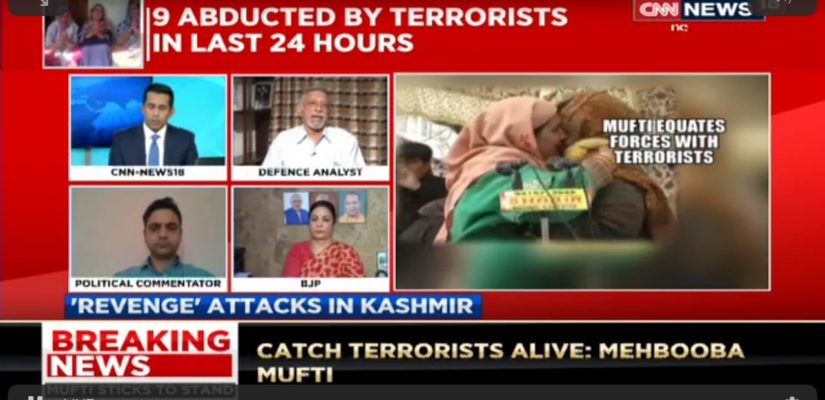
Is there a middle point in Indo-Pak relations (English Version) Rakshak News 26 Dec 18
http://www.rakshaknews.com/vishesh/is-there-any-middle-path-between-indo-pak-relations
Is there a middle point in Indo-Pak relations? (English Version) Rakshak News 26 Dec 18
There are multiple indicators flowing from Pakistan in recent times. The letter from Imran Khan seeking a meeting between foreign ministers in New York on the side lines of the UN General Assembly session was the start point. Following it have been statements that the Pak army and government are on the same page. It appears that Pak is desperately attempting to send forth multiple messages of peace.
The agreeing to the long pending Indian demand for opening the Kartarpur corridor was the first message. The near simultaneous announcement by both countries indicates the success of diplomacy. The announcement by Imran on proceeding with the prosecution of the 26/11 perpetrators and finally the statement by their foreign minister that Indian cooperation is essential to bring about peace in Afghanistan were the most recent.
At the same time Pak has been attempting to provide a voice to the separatists agitating in the valley especially post the Pulwama incident. As per reports emanating from the valley, there are about only 50 foreign militants there, majority being locals. This could possibly be the lowest number of foreign militants present in the valley in some time.
Any government in Delhi is wary of putting forth a hand of friendship towards Pakistan, as earlier experiences have always been bitter. Mumbai, Kargil and Pathankot have followed attempts of moving forward in dialogue. For possibly the first time in Pak’s history, the government in power is a puppet of the army and hence many strategists have stated that this may be the ideal moment. This alongside international pressure, isolation and a dwindling economy seem to have pushed their army to seek peace.
India refusing to even participate in the SAARC summit has led to the organization becoming defunct. Pak is desperate for its revival as hosting the summit would provide it with some legitimacy in the subcontinent. Backing India has been Bangladesh, Afghanistan and Bhutan. Maldives, with a change in government would now also back India. In case, Pak does provide some indicators of its seriousness in seeking dialogue, accepting attending the SAARC in principle could be India’s response.
India has shown scant inclination to respond to Pak’s overtures. It has either maintained silence or on occasions rejected Pak’s moves. In such a scenario, is there a middle ground on which the two nations can consider dialogue or is it likely that the relationship is stalemated and would continue as it exists presently in a ‘no war, no peace’ scenario.
India having experienced Pak’s double actions, now seeks an assurance from Pak before it seriously considers dialogue as a way forward. These cannot come from messages of peace and dialogue alone, while it continues to support the movement in Kashmir. Words need to be backed by action and hence a positive message is essential. For India, acting against the perpetrators of Mumbai and reducing the presence of terrorist launch pads in near vicinity of the borders, would be positive indicators. Thus, the first thaw did appear when Imran asked his government details of the Mumbai case.
India is aware that the depth to which the Pak army has been indoctrinated by anti-India hate, would be difficult to remove overnight. It has greater threat from terrorists and anti-national elements within, which it tends to discard. This factor is gauged that in every instance the Pak DG ISPR (Director General Inter Services Public Relations) talks about the sacrifices made by the army in battling terrorists, very rarely in dealing with Indian cross-border firing. The Indian army chief had also rightly suggested that Pak recalibrate its stance from regarding India as a primary enemy to considering terrorism as primary.
Realistically, the Indian leadership has no time to even consider talks with Pak till May 2019. This gives Pak enough time to send the right signals to India. India has always advocated talks, but each attempt being cut short by a terrorist incident, has created doubts on Pak’s intentions. If the signals are positive, there would be enough middle ground for talks, none if the signals remain negative.